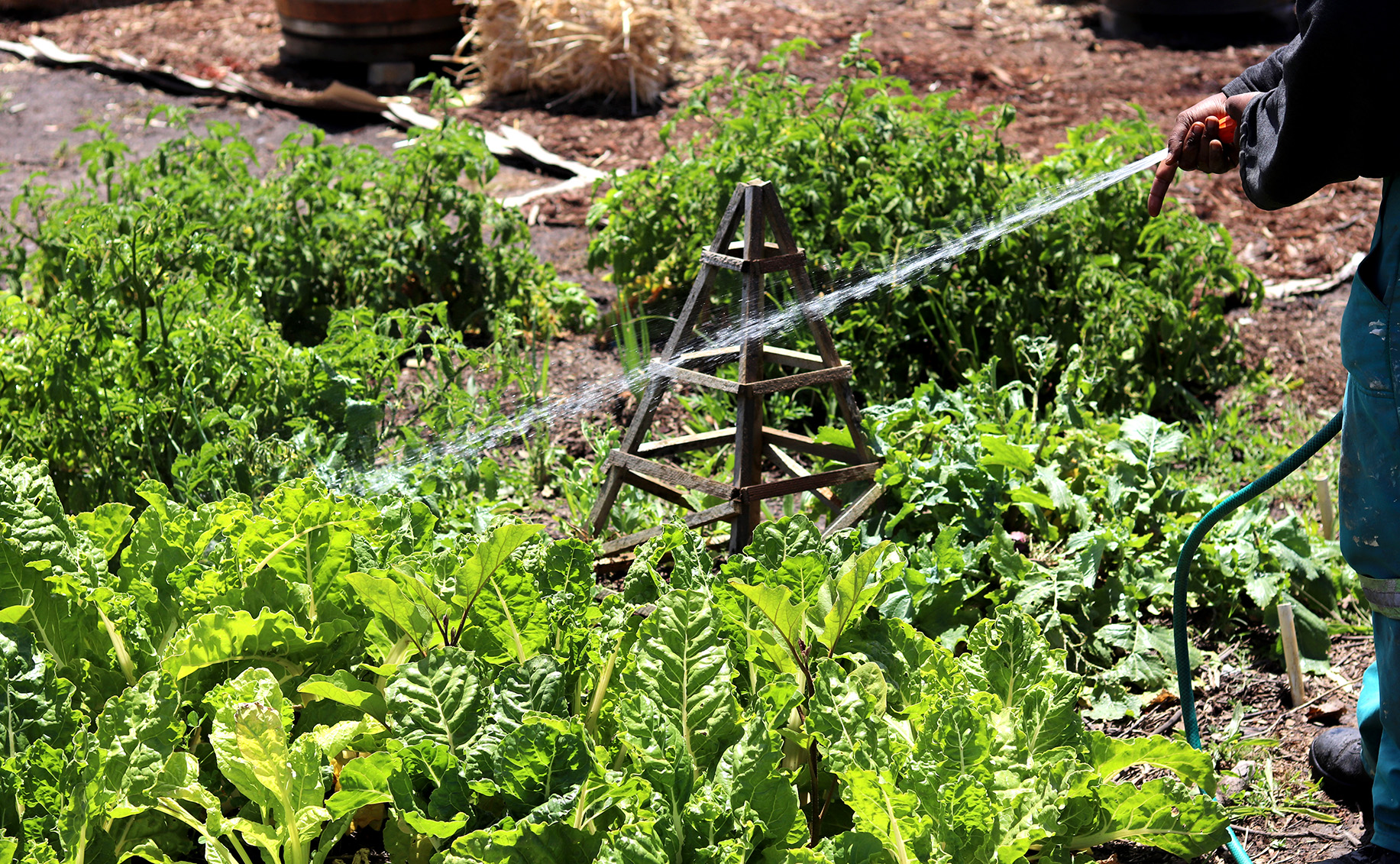In honour of World Soil Day on 5 December, The Sprightly Seed programme – a public benefit organisation committed to environmental sustainability, social development and education – announced the launch of a new organic market garden at Bel Porto School in Lansdowne, Cape Town.
The goal is to promote sustainable living in urban areas and assist in food security in the province; recent statistics show that 30.6% of households in the Western Cape are severely food insecure.
The organic market garden opened to the public on 5 December and will operate during school hours, from 9am to 3pm, offering a variety of nursery products, fruits and vegetables.
The programme started in 2017 with the hope of having an impact on nutritional scarcity within the school context, said Jade Orgill, co-founder of The Sprightly Seed programme.
“The new garden is more than just a plot of land; it represents a vital step towards enhancing food security and nutrition, especially crucial in South Africa where, according to recent statistics, about 27% of the country’s children under the age of five experience prolonged periods of undernutrition,” she said.
Currently, The Sprightly Seed programme operates within the Western Cape, ensuring that children benefit not only from the nutrition programme but also from learning fundamental skills through engaging with the food garden.
“We went into schools [in the Western Cape region] and taught them how to grow their food over one year, and all of that food went into the school feeding programme to boost the nutritional value of the meals the kids get served,” said Orgill.
 Jade Orgill, co-founder of The Sprightly Seed Programme, at the launch of the organic garden at Bel Porto School. The aim is to bring organic farming practices to urban settings in a way that is accessible and sustainable. (Photo: Liam Voorma)
Jade Orgill, co-founder of The Sprightly Seed Programme, at the launch of the organic garden at Bel Porto School. The aim is to bring organic farming practices to urban settings in a way that is accessible and sustainable. (Photo: Liam Voorma)
Fundamental skills
“The basic skills include how to prepare the ground, how to get the seeds into the ground, how to care for the seeds, how to harvest the fruit and then what do you do with the fruit,” said Ilona Herman, principal at Bel Porto School.
Bel Porto accommodates 260 children with severe intellectual disabilities and autism disorders.
The organic market garden not only teaches the children how to farm their own food but also provides them with valuable skills they could take into the job market.
“If we can give them this set up, which is real and authentic, these kids can get a certificate and show that they have worked in a market garden,” said Herman.
Orgill said the roadmap for the programme at Bel Porto School is comprehensive, integrating key components such as experiential outdoor education, management of post-harvest processes, beneficiating garden produce into earth and people-friendly products, seamless curriculum integration, and ensuring knowledge access and inclusive skills development.
“We give them everything they need to learn, such as composting, how to grow from seed, how to make fertiliser. If they can manage those things, they would need very little budget,” she said.
 Children from Bel Porto School were given the opportunity to plant their own produce at the launch of the organic food garden on 5 December. (Photo: Liam Voorma)
Children from Bel Porto School were given the opportunity to plant their own produce at the launch of the organic food garden on 5 December. (Photo: Liam Voorma)
Community advancement
“This garden is not just a place to grow food … it is a centre for community learning and engagement,” said Orgill.
Moving forward, The Sprightly Seed aims to deepen community ties through interactive workshops and collaborative partnerships, especially within the school context, and has hopes for the programme to become a model for the education sector.
“When we plant something, we are advocating our future well-being and sustaining the planet at the same time. It represents real connection,” said Orgill.
The pandemic highlighted the potential of these markets, said Orgill.
“Our community schools turned into community feeding programmes – the gardens that we had were impacting a wide reach of audiences. Whole communities were lining up to receive meals during Covid,” she said.
The produce sold not only assists in food security within the area but also provides a sustainable income to schools that house organic market gardens.
The Bel Porto School organic market garden is one of 11 ongoing projects by The Sprightly Seed programme, all focusing on assisting schools to meet their basic nutritional needs for their pupils and to teach individuals to grow their own food. DM




 Children from Bel Porto School were given the opportunity to plant their own produce at the launch of the organic garden on 5 December. "We wanted to create a space where [individuals] with all different kinds of abilities could come, get their hands dirty and connect with the environment, and experience learning, sensory development and the beauty of what nature could produce,” said Jade Orgill, Co-founder of The Sprightly Seed Programme.
(Photo: Liam Voorma)
Children from Bel Porto School were given the opportunity to plant their own produce at the launch of the organic garden on 5 December. "We wanted to create a space where [individuals] with all different kinds of abilities could come, get their hands dirty and connect with the environment, and experience learning, sensory development and the beauty of what nature could produce,” said Jade Orgill, Co-founder of The Sprightly Seed Programme.
(Photo: Liam Voorma)